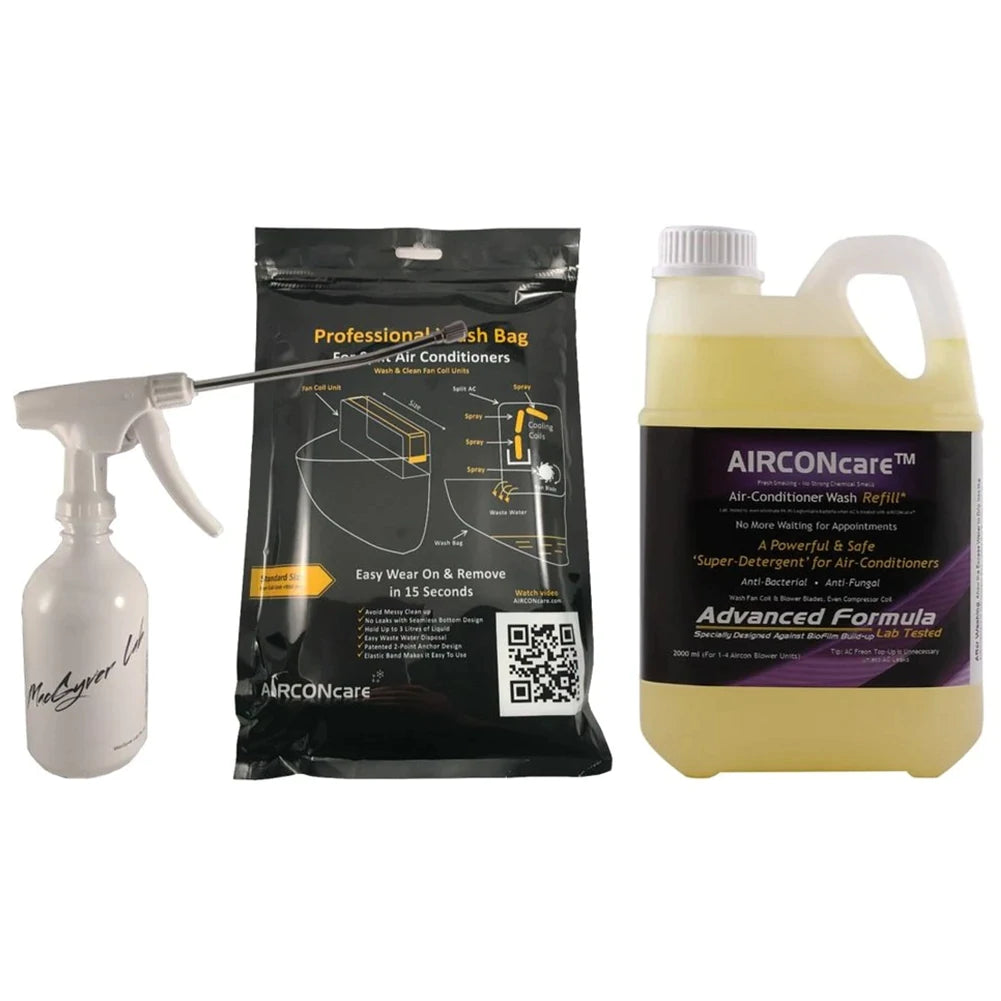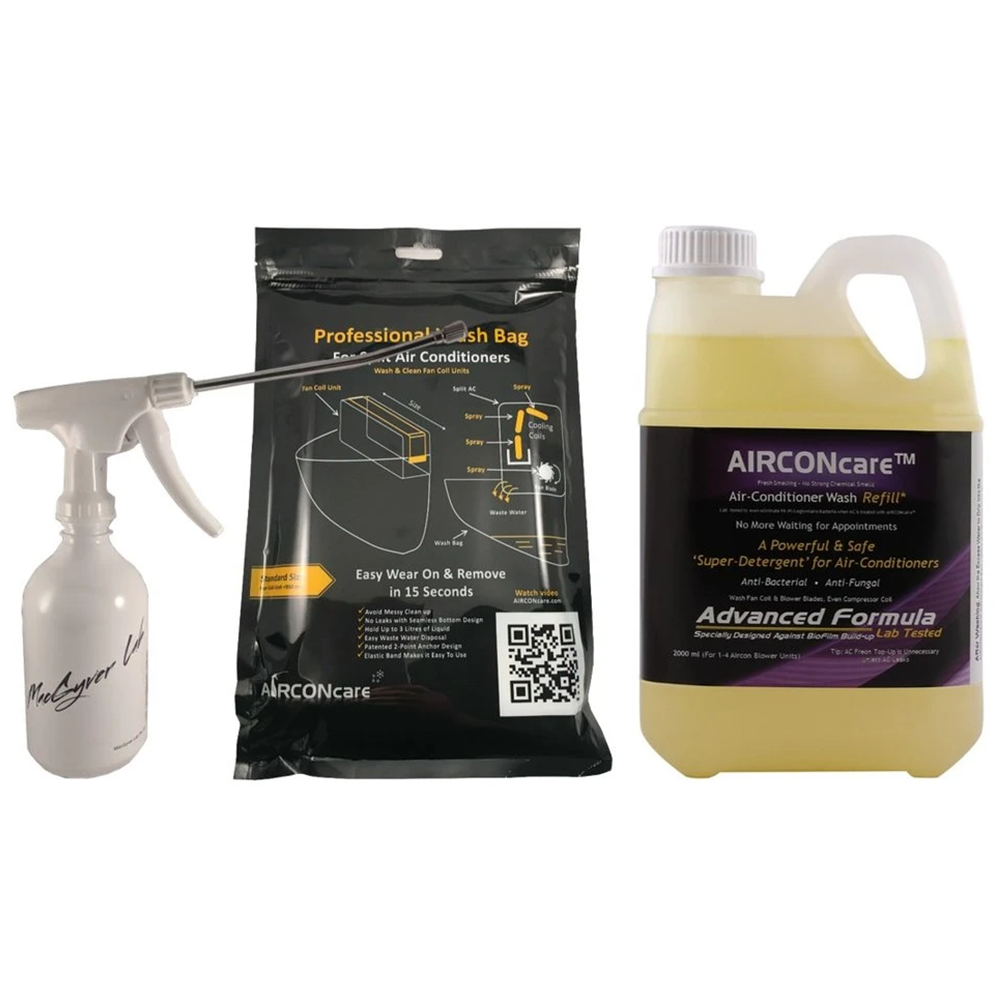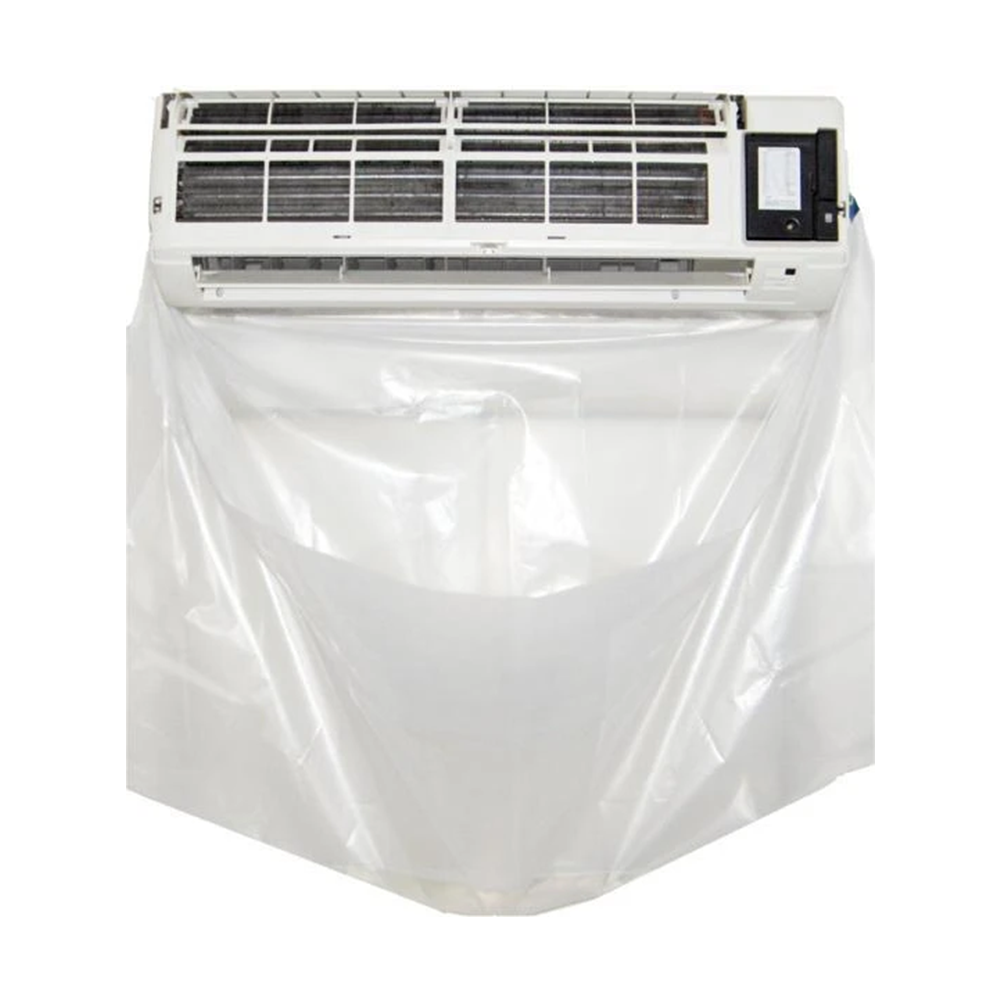Unlock Cool Comfort with Air Conditioner Evaporator Cleaner: Why It's Essential
An unreliable or malfunctioning air conditioner is a major inconvenience, especially during a heat wave.
You don't have to have a grumpy pet to realize this! Get yourself high quality A/C coil cleaner cleaning kits from HVAC Shop make sure your AC works on its best performance always!
Trying to fall asleep in an 85-degree house is not a pleasant experience.
There's most likely a problem with one of the components of your HVAC system if your aircon is not cooling properly or keeping the desired temperature indoors.
Unclean coils could be one of the reasons your air conditioner isn't cooling properly. If you clean them, you might notice a difference in how your air conditioner works.
AIRCON COILS
The evaporator condenser coil are the two types of coils found inside your air conditioner. Dirt and filth collect on these coils, which causes them to malfunction. If any of them fail to perform properly, your air conditioner will not be able to deliver appropriate cooling.
If your air conditioner isn't cooling correctly, you should first inspect the coils and clean them if they appear dusty.
Evaporator Coils
Your indoor air conditioner holds evaporator coils, the air handler unit. This coil absorbs the heat and humidity in your home.
Condenser Coils
The condenser coil is part of the outside unit of your air conditioner. The absorbed heat is ejected into the atmosphere by this coil. Because this coil is located in the outdoor AC unit, dust, smog, smoke, leaves, and other debris are more prone to clog it.
REASONS WHY YOU SHOULD CLEAN YOUR AC COILS
Guaranteed Optimum Performance
Your air conditioning unit is multi-part equipment that requires a lot of maintenance. One of these is your condenser coil.
The condenser coil is one of the two coils that make up your air conditioning or heat pump system. The evaporator coil is situated indoors, whereas the condenser coil is located outdoors (in a split system). The heat is extracted from the refrigerant at the condenser coil.
Two things happen here. The gas refrigerant enters the condenser coil after being compressed and heated in the compressor. The heat from the gas refrigerant is transferred to the air passing over it. The coolant cools and changes into a liquid at the same time. As the air around the coil heats up, it is blown out of the outdoor unit.
If the condenser coil on your air conditioner fails, the entire system will suffer.
Regularly inspect your outdoor unit. Make sure the outside unit is fresh and the area around it is clear. Residue might reduce the efficiency of your air conditioner. If you're not sure how to correctly service your equipment, you can contact an expert.
Added Comfort
Most households don't clean their exterior units on a regular basis. Keep in mind, however, that condenser coils are included of the outside unit. The functionality of your air conditioner is impacted if the condenser coil is not cleaned. When covered in dirt and debris, heat is trapped inside and cannot be adequately expelled. Then that will result in inefficient cooling and increased energy use.
It's critical that your air conditioner cleaned on a regular basis. Cleaning your air conditioner's condenser coil should be included. If your ac unit is more efficient, your indoor environment will be more pleasant.
Longer AC Lifespan
Dirt, pollen, dust, and insects are continually present on condenser coils.
Remember that there's no other effective way than regular maintenance of extending the lifetime of your air conditioning unit. If you don't maintain your aircon coils, your energy bills will skyrocket.
WHAT IS AN A/C COIL CLEANER MADE OF?
While exceedingly toxic, hydrofluoric acid is used in coil cleaners to erode and brighten aluminium. The etching of aluminium removes impurities by removing the contamination's substrate. This process produces hydrogen gas, which is trapped by the cleaner's detergents, resulting in a foam that enhances surface contact time on vertical surfaces while also pushing pollution outward from the coil's core.
It's a very effective cleaning process that is commonly utilised. Some companies have substituted ABF for HF in formulating so-called safer acid cleansers. ABF has a slightly lower danger profile than FIF in its raw material powder form. The issue is that when ABF is mixed with water, it transforms into HF and ammonium fluoride (AF). As a result, any cleaner containing HF or ABF should be managed and treated as an HF acid-based product.
Finally, formulations including ABF are no safer than solutions containing HF. Both will include the same safety precautions, such as specialist first aid and healthcare, to neutralise fluoride's effect on the body. Cleaning an evaporator or chilled water cooling coils with these materials should never be done indoors. They should only be used and labelled as an outside air-cooled condenser cleaning.
HOW DOES A/C COIL CLEANER WORK?
A lot of tools merely need basic training. Coil cleaning has become easier and less time-consuming because of advancements in technology and design. Because of the equipment's portability, it's ideal for smaller settings.
It's critical to make sure you're buying the right kit for your maintenance requirements. Make contact with the makers of the things you're looking into. They may be able to recommend features that make coil cleaning easier and quicker.
Seek a coil-cleaning system to remove dust and dirt from the evaporator and condenser coils with sufficient water pressure. While pressure washers are one of the most used ways, they might cause more harm than good if the coil's delicate fins are damaged.
When indoor washing coils, utilize equipment that has low but enough pressure. You can avoid overloading condensate lines by limiting the quantity of water and chemicals you use. To completely clean outdoor coils, use a combination of low pressure and high water volume.
It's just as crucial to get the correct coil-cleaning chemical. Acid cleaners are hazardous to workers, have bad coils and other components, and are unfriendly to the environment. An alternative is a biodegradable alkaline coil cleaning with a foaming element. Indoor coils can also be treated after cleaning with EPA-registered mold and mildew inhibitors, which control any development and improve indoor air quality.
Air Conditioner Indoor Cleaners
The evaporator coil helps carry the refrigerant that chills the air. The blower transports warm air from within your home through the evaporator coil. The coolant inside the evaporator coil collects heat from the air, and the cooled air is circulated throughout your home via the air conditioner's air vents.
The refrigerant then goes to the external condenser coil, absorbing heat and eliminating it. The condenser blasts heat over the coils. It assists in the discharge of absorbed heat.
If the coils of you are dirty, a layer of grime will form on them, causing a difference between the coolant and the air that passes over the coils, reducing the efficiency of the heat transfer process.
This entire process is slowed by poor heat transfer, which compels your system to work more, longer, and under strain to provide cooling.
It's therefore critical to keep AC coils clean to provide optimum cooling.
HOW DIRTY COILS AFFECT YOUR HVAC SYSTEM'S EFFICIENCY
Some people assume that the coils will become dusty over time and have no effect on cooling. The efficacy of your air conditioning system diminishes by 5% if just 1/100th of an inch of grime and dirt collects on the coils.
As a result, less cooling will be available, more energy will be wasted, and utility rates will rise. Although a 5% reduction in HVAC system effectiveness may look insignificant, it has a major long-term impact.
Although it's tempting to imagine that a little dirt is innocuous, the reverse is true for HVAC equipment. If your air conditioner's coils are dusty, you're likely to have several problems, including:
- Breakdowns are occurring more frequently.
- Increased energy costs
- Uncomfortable living quarters
- An evaporator coil that has become frozen.
HOW TO CLEAN AC COILS
If your aircon unit is still under warranty, ensure that self-cleaning does not void the guarantee.
- Turn off the air conditioner and the condensing unit's electricity at the thermostat.
- Remove the outer shell as well as the caging. Remove the bolts that connect the lid to the remainder of the condenser, but be careful not to remove the nuts that connect the fan to the cover. Be careful not to stretch or damage any wires if your air conditioner's fan assembly is located at the top of the unit. Contact a specialist if you are unable to proceed without doing so.
- Remove any trash or damaged fins. Remove any broken aluminium fins and any leaves, dirt, or dead insects that have gotten inside the unit (aluminium fins promote heat transfer). It reduces corrosion and improves airflow.
- Clean the unit using a spray bottle. Splash out your AC unit with a hose, being careful not to spray the disconnect or the electronic parts inside the access panel.
- Use A/C coil cleaners to clean the coils. Use the cleaner to cover the condenser coils completely. Allow the Simple Green to rest for 10-15 minutes to penetrate heavy soils before rinsing it off. Check the coil surfaces for any spots that may require the extra application of the coil cleaner after it has dripped off the coils, and repeat this procedure if necessary.
- Rinse and dry your air conditioner. Using a clean cloth or paper towel, pat dry. From the inside out, spray rinse water to remove any leftover residue.
- Examine the coil fins for any damage: Straighten any bent coil fins with care.
- Reattach the air conditioning unit by following these steps: Now that your coils are clean reassemble your aircon and reconnect the power to the condensing unit.
FREQUENTLY ASKED QUESTIONS
How Often Should Your Coils Be Cleaned?
With a seasonal tune-up, you can get away with cleaning your coils yearly. However, it would help if you thought about where your unit is. If you live in a big city with a lot of pollution, you should have your coils cleaned twice a year. Frequent tune-ups will also keep your system working well if the device is older or used for most of the day.
Examining your condenser coils every few months and gently cleaning off debris with a brush can be a simple way to keep an AC system working between tune-ups. Because air conditioning maintenance can be pricey, maintaining your system clean all year can save you a lot of money in the long run.
USE HIGH-QUALITY A/C COIL CLEANER FOR YOUR AC COILS
Lack of air conditioning maintenance can result in clogged condenser drains, ACs spilling water inside, and even significant malfunctions. If you believe you need to get an AC repair or air con system servicing, contact HVAC professionals as soon as possible to have, your unit inspected and cleaned.




